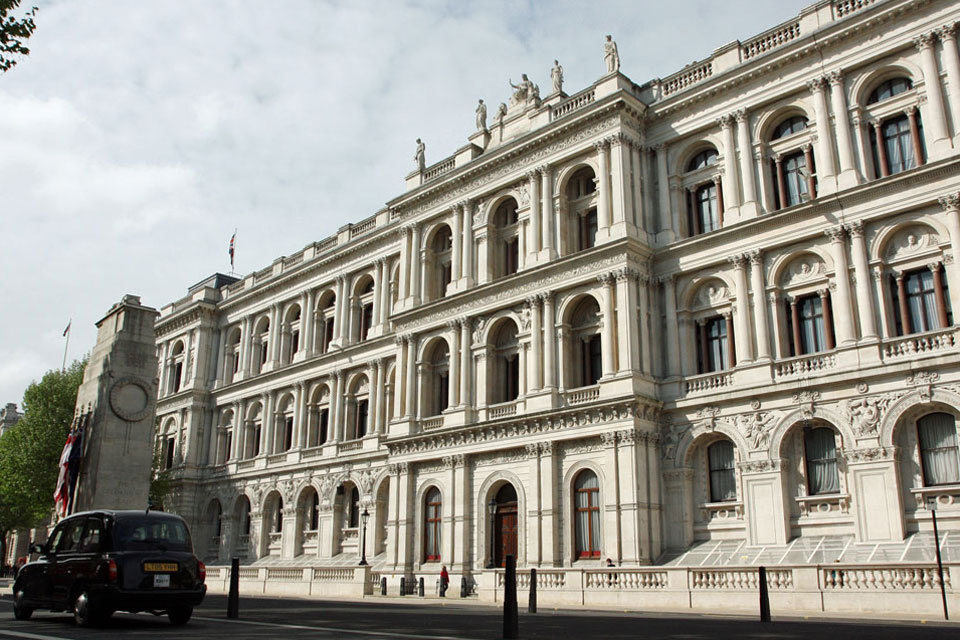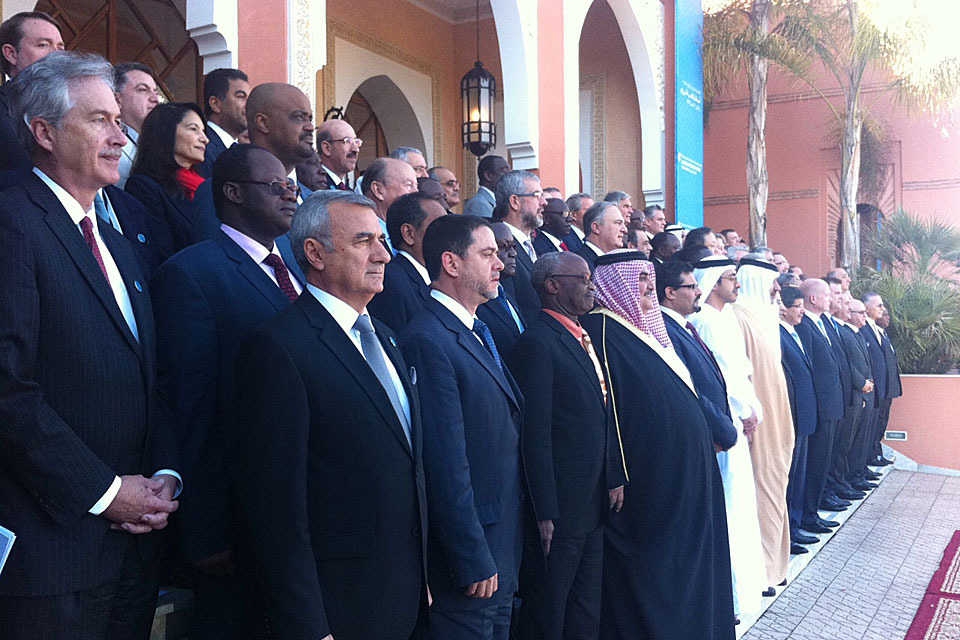Foreign Secretary remarks at Friends of the Syrian People meeting
The Foreign Secretary William Hague has outlined the immediate responsibilities for the Friends of the Syrian People.

Representatives from over 130 countries and international organisations met in Marrakesh for the fourth Friends of Syria meeting to support the Syrian National Coalition and the Syrian People.
Speaking at the meeting the Foreign Secretary William Hague said:
“I thank the Government of Morocco and H.M. King Mohammed VI.
“Twenty-two months ago the people of Syria asked for change. Their government responded by pounding cities into rubble, plunging four million people into desperate humanitarian need, and sowing fear and insecurity across the country.
“As Friends of the Syrian people, we have done much to seek a peaceful end to the conflict. But we remain deeply disappointed by the failure of the international community to put its full weight behind the agreement made in Geneva six months ago.
“Syria needs a political transition leading to an inclusive new government, with full executive authority.
“This is the course most likely to achieve stability in the country.
“But in the United Kingdom we do not rule out any option to save lives. In addition, the Assad regime should not doubt our resolve, or miscalculate how we would react to any use of chemical or biological weapons against the Syrian people.
“As the Friends of the Syrian people, we have four immediate responsibilities:
“First, we must increase our political support for and recognition of the Syrian National Coalition. I encourage other nations to recognise them as we have done in the United Kingdom.
“The people of Syria need to feel the solid ground of a unified political alternative to the Assad regime. The National Coalition has now begun to offer that hope, and it is only right that we give them the recognition they deserve, and the support they need to survive and to prevail.
“Some countries have resisted the idea of a transition because they have seen no alternative to Assad’s leadership. Well now the world can see that there is an alternative, and I urge all countries including Russia and China to work with us to end the conflict. If they do, they will find us constructive partners, and I commend Special Envoy Brahimi for his efforts in this regard.
“Second, I appeal to all countries here to give practical support to the Syrian National Coalition.
“The United Kingdom has given over £7 million of non-lethal support, including communication equipment and human rights training. We will provide a further £1 million in communication support, and look to expand our assistance, through the leadership of the National Coalition, following the deployment of a UK Stabilisation Response Team to the region.
“We welcome the new Assistance Coordination Unit established in Cairo, which will be able to help co-ordinate non-lethal assistance to the Syrian people including to the Local Coordination Committees inside Syria, and we call on all countries here to give it active support.
“As we increase our support to the Syrian people we must also increase the pressure on Assad and his allies. I call again on all countries to implement sanctions, and to ensure that their territory is not used as a conduit for arms or assistance to the regime.
“Third, we must ensure the international community is ready to provide rapid assistance to a future government in Syria in order to help a political transition succeed. We need to be ready to react to change on the ground, which could happen suddenly.
“We look to the National Coalition to develop further detailed plans for achieving and implementing transition working with all Syria’s communities, and to uphold human rights and international law, including humanitarian law.
“Fourth and finally, we must do more to alleviate Syria’s humanitarian tragedy.
“The United Kingdom has provided £53.5 million so far in humanitarian aid which is providing 100,000 people with food, blankets and warm clothing, and we have helped 30,000 sick and wounded people by funding hospitals, mobile clinics and training for health workers.
“Many other countries have given generously too, but it cannot be right that the UN appeal for Syria is still underfunded.
“As we gather in this beautiful city we should remember that 50% of all Syria’s refugees are children. The majority are not in school, are living in makeshift shelters in the depths of winter, and many have lost their families. They represent Syria’s future. Their safety, their education, and their ability to return to their home matter to Syria, and to the peace and security of the region. So I urge all countries to do more to help share the burden.
“As part of our new initiative on preventing sexual violence in conflict, the UK has deployed experts to the region to provide training on documentation of sexual violence which we hope will support future prosecutions and care for survivors.
“We do not know how long the conflict in Syria will last. But uniting the international community around these efforts, helping the National Coalition to win the confidence of the Syrian people, planning for a peaceful future for the country and protecting the victims of the violence on whom that future will rest, is surely the right way to seek to end the conflict and stop the appalling loss of life.”

Friends of Syria meeting
Further information
More information on the Geneva Declaration
More information on the Preventing Sexual Violence Initiative
Updates to this page
-
Changed the title to Friends of the Syrian People
-
First published.